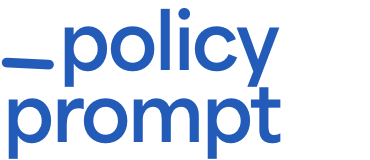Episode Description
How do you discover music? College radio, word of mouth, serendipity — or your very own AI DJ? In 2006, Spotify’s founders discovered music as “a traffic source” for an advertising model, and have since transformed the music industry. But what are their goals or values when it comes to music and culture beyond the pursuit of profit, and what does it mean for musicians and music lovers? And why aren’t policy makers more concerned about this mega platform?
In this episode of Policy Prompt, hosts Vass and Paul welcome Liz Pelly, music and media critic, and the author of Mood Machine: The Rise of Spotify and the Costs of the Perfect Playlist (Atria, 2025). Together they chat about how we’ve consumed our music over the years, and how it’s been fed to us, from the “stimulus progression” of Muzak’s elevator tunes to the “mood-driven logic” of Spotify’s algorithmic curation.
In-Show Clips:
- 00:12:57: AFP News Agency, “Sweden’s Pirate Party aims for kingmaker spot” (YouTube, March 26, 2010)
- 00:18:34: CNBC Television: “Spotify is the platform for artists who want to break globally, says Evercore ISI’s Mark Mahaney” (YouTube, November 12, 2024)
Mentioned:
- Muzak’s archives and the concept of “stimulus progression”: see https://muzakarchives.com/ and https://muzakarchives.com/stimulus-progression/
- Big Shiny Tariffs (public playlist): https://open.spotify.com/playlist/56kKurRKQmJnhJgvq9pSV5
- Big Shiny Tunes: https://en.wikipedia.org/wiki/Big_Shiny_Tunes
- Canada’s Online Streaming Act (Bill C-11): www.canada.ca/en/canadian-heritage/services/modernization-broadcasting-act.html
- Songza: https://en.wikipedia.org/wiki/Songza
- Rhapsody/Napster: https://en.wikipedia.org/wiki/Napster_(streaming_service)
- “Pirate Bay”/Piratbyrån: https://en.wikipedia.org/wiki/Piratbyr%C3%A5n
- Living Wage for Musicians Act of 2024: www.congress.gov/bill/118th-congress/house-bill/7763
- Federal Music Project: www.wnyc.org/series/works-progress-administration/about
- The Musicians’ Union: a trade union representing more than 36,000 musicians across the United Kingdom working in all sectors of the music business and supporter of the Musicians’ Census
- Public Knowledge’s Streaming in the Dark project: see their video explainer and the 2024 paper by Meredith Filak Rose, “Streaming in the Dark: Competitive Dysfunction Within the Music Streaming Ecosystem” (Berkeley Journal of Entertainment and Sports Law 13 (1): 23–66)
- “Edmonton Public Library’s first digital public space, created to celebrate Edmonton’s local music scene and its history”: see https://capitalcityrecords.ca/ and https://capitalcityrecords.ca/albums
Further Reading:
- Liz Pelly’s bio: https://lizpelly.info/
- Liz Pelly, Mood Machine: The Rise of Spotify and the Costs of the Perfect Playlist (Atria, 2025)
Credits:
Policy Prompt is produced by Vass Bednar and Paul Samson. Our technical producers are Tim Lewis and Melanie DeBonte. Fact-checking and background research provided by Reanne Cayenne. Marketing by Kahlan Thomson. Brand design by Abhilasha Dewan and creative direction by Som Tsoi.
Original music by Joshua Snethlage.
Sound mix and mastering by François Goudreault.
Special thanks to creative consultant Ken Ogasawara.
Be sure to follow us on social media.
- X: @_policyprompt
- IG: @_policyprompt
Listen to new episodes of Policy Prompt biweekly on major podcast platforms. Questions, comments or suggestions? Reach out to CIGI’s Policy Prompt team at [email protected].





